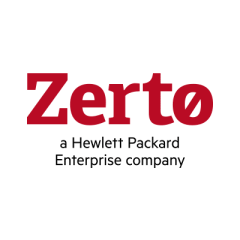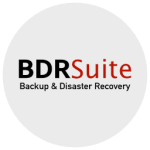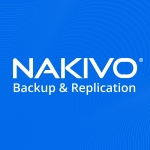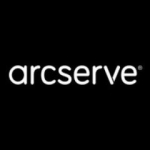What is our primary use case?
Zerto runs on a Windows Virtual Server and we have it installed at two sites. There is the production site, as well as the failover DR site.
We use this product almost exclusively for disaster recovery. It is responsible for the automated recovery of what we deem to be our mission-critical servers.
How has it helped my organization?
In terms of its ability to provide continuous data protection, this is a product that I trust. We test it quarterly to make sure that what the dashboard is telling us is correct. But, I've used it long enough to know that when I see the dashboard telling me that the virtual protection groups (VPGs) health are all green, then things are working correctly. Our average RPO is usually somewhere between three and 10 seconds.
We used to perform a disaster recovery test once a year, and it was painful because everything was manual. Now that we do it quarterly, we're able to provide management with reports of the tests, which not only makes management happy but also makes various governing bodies happy. We're a financial advisory firm, so it's the SEC that oversees us. That said, I'm sure this holds true in many industries. It allows you to have the reports to prove that you've done the tests. We don't have to ask them to take our word for it.
When we need to failback or move workloads, Zerto has absolutely decreased the time and number of people that are required to do so. For example, if I just want to test and prove that the network is up, it's something that I can do by myself. If I want to have people log in and test applications and stuff like that, I would need additional people. However, it has a built-in test function, so it will create a complete test network that you can run workloads on to show that the tests are successful. Afterward, you can delete the network and you're back just running, waiting for the next time you want to do that. In a situation like this, using Zerto saves eight hours or more and I can set it up and test it on my own unless I want people actually testing applications.
Thankfully, we have not had to use this product to recover from a ransomware attack or other disaster, but it would absolutely work in that case. By replicating the data, if ransomware were to hit the production side, it most likely would not also lock the disaster recovery side. This means that we would certainly be able to bring it up from there. Alternatively, it lets us pick points in time, so we can just go back to the moment in time before the ransomware happened. In a situation like this, I can't say that it would take fewer people but it would take fewer hours.
What is most valuable?
The most valuable feature is the automated failover, as it allows us to get the essential servers up at our DR site with little intervention.
Zerto is extremely easy to use. You set it and forget it.
It has a nice graphical interface.
What needs improvement?
The reporting could be improved in terms of the reports that you can show to auditors to prove that you have done the testing. I provide the reports that it generates now but, it would be great if, at the end of a DR test, it would generate a report of everything that Zerto did.
This would include details like what systems were up. Currently, that's not how the report reads. You would have to be an IT person to read the current reports that it produces. I would like for them to be the type of reports that I can put in front of an auditor or the president of our firm that would make sense to them, without me having to interpret and explain the results.
For how long have I used the solution?
We are in our seventh year of using Zerto.
What do I think about the stability of the solution?
Stability-wise, this solution is rock-solid. If it fails, it's not going to be Zerto that fails. It's going to be either that your storage has failed or the bandwidth, or connectivity, is not there. I don't see a way where Zerto would be the culprit in a failure-type instance.
What do I think about the scalability of the solution?
Our company is fairly small and the entire firm relies on it. That said, only one person actively uses it. We have three or four IT staff but Zerto has always been my responsibility.
In terms of scalability, I bet it would be no issue whatsoever. It's licensed according to the virtual machines that you want to protect. The only limitation of the scalability would be how deep your pockets are because it's going to be license costs.
We're a registered financial advisory firm, and we are growing. In the past year to 18 months, we have grown from approximately 52 employees to 70 employees. Everybody relies on it because if we have a disaster recovery type of situation, then everybody is going to expect to be able to work.
It is still a very small number of IT staff, so I can see that as we hire more IT staff to support a larger user base, we will certainly have more users. At least, I hope not to be the only one responsible for this solution as we grow.
How are customer service and support?
I would rate the technical support a ten out of ten.
Which solution did I use previously and why did I switch?
Prior to Zerto, we used VMware Site Recovery Manager (SRM). We switched because it requires a lot of manual upkeep, and there is no automation involved unless you write the scripts. There are lots of freeware sites where you can download scripts, but aside from that, we were spending a lot of time manually writing scripts and maintaining everything. This was really counterproductive for the amount of time we had available in a day.
Essentially, SRM was replaced because of better interface automation and ease of use.
How was the initial setup?
The setup is very easily done because you tie it into your VMware vCenter. When you put in your credentials, it will recognize everything on your networks. It will recognize storage, whether it be cloud-based or as in our case, at another data center. Once you have those defined, it's just a matter of creating groups that you want to recover, server-wise.
The reason that you would want to do it in groups is that you can set it up in the automation such that it will bring up groups in a certain order. That way, you have a network where the domain controllers come up in the first group, and you can automate stuff from there.
Seven years ago, when I first started to use it, I found it more difficult. I wouldn't say that it was complex but they have certainly made improvements over the years. Where it stands now, if I had to set it up from scratch, I could probably do it in about an hour. Of course, that is because of the way I know the application but in terms of how they have changed the setup, it is certainly more user-friendly than it was compared to where it started.
I remember running into a couple of issues during the deployment, and I contacted their support. They were fantastic and helped me get through it. They made sure that all of my questions were answered, and that it was up and running how we intended it to be used. A lot of it probably had to do with me being a novice at that point, in terms of using the application.
It was a multi-site deployment, with a production site and a DR site, with dedicated storage for each. We have changed the storage that it uses over the years and if I had to do it again, I would use another vendor for storage. A lot of the issues that we ran into were related to the initial storage that we used, as opposed to Zerto issues, even though it was Zerto support that helped me fix them.
Overall, the deployment was fairly easy. Not because everything went great, but because of the combination of the application being pretty well-written and the support. I would rate the deployment an eight out of ten.
What about the implementation team?
I deployed Zerto with the help of a consultant, contacting support as we needed to. The consultant was NetGain Technologies and they're based out of Lexington, Kentucky. Their service was phenomenal and I would use them again in a heartbeat for this type of deployment. Ultimately, any issues that we ran into boiled down to some issues with the storage we chose to run it on.
I am responsible for the maintenance.
What was our ROI?
We have absolutely seen a return on investment in terms of the manhours that have to be put into maintaining and testing this type of product. Thankfully, we have never had to use it in a true DR situation. However, I can guarantee that if something were to happen, even beyond the manhours and ease of automation, that it would pay for itself.
Our network infrastructure runs pretty smoothly most of the time. That said, Zerto has helped us to reduce downtime by approximately 20%. It is difficult to equate this with a monetary value because we have to consider what happens when a client misses a trade or cannot get a hold of their portfolio manager.
If it were an outage of a couple of hours then the person might pay a little more or a little less for a stock that they were trying to purchase. Overall, however, it is difficult to estimate. We aren't a day trading-type firm, so ultimately, I'm not sure that a short outage has any effect on our revenue stream whatsoever.
What's my experience with pricing, setup cost, and licensing?
As a small company, we own the smallest license that Zerto offers, which is 15 VMs. I've not had to contact them or my reseller about purchasing additional licenses or to find out how much they cost.
Which other solutions did I evaluate?
We spoke with VMware to see what their pipeline was for upgrades or changes to Site Recovery Manager and we also looked at both Cohesity and Rubrik.
I like the separation of the software and the storage, whereas some of those other products are all-in-one. You're buying the software and storage together on the same platform. This means that the scalability would be different.
Sometimes, this is a case of adding shelves for storage. In that situation, for example, you have to start taking the data center rack space into account. Whereas with Zerto, it lets us build upon hardware we already had, even though we use dedicated storage.
What other advice do I have?
Version 9 of this product is out. However, we have not yet upgraded. We're not leveraging the cloud the way a lot of companies do these days, and I know from the release notes that I've read that most of the new features are related to the cloud. There's not a lot of research and development being done on physical data centers anymore.
At this point, I'm very happy with where the product sits for my network. We are now just starting to move things to the cloud, which will take place over the next couple of years, so my assessment in this regard may change in perhaps a few years.
At the moment, we don't have plans to use it for long-term retention. We keep about three days' worth of data in Zerto and then it rolls off. We have other systems in place for long-term retention.
My advice for anybody who is looking into implementing Zerto is to do your homework. In the end, this product checks all of the boxes and it's the one that I would go with.
In the way that we use this solution, which I know is not how everybody uses it, we have storage that is specifically used for Zerto and two data centers. The way it works in that scenario, as long the bandwidth is there, meaning some sort of dedicated circuit between the two sites, it's flawless in my opinion.
The biggest lesson that I have learned from using Zerto is that disaster recovery doesn't have to be a giant pain. I certainly used to look at it that way in the past.
I would rate this solution a ten out of ten.
Which deployment model are you using for this solution?
On-premises
Disclosure: PeerSpot contacted the reviewer to collect the review and to validate authenticity. The reviewer was referred by the vendor, but the review is not subject to editing or approval by the vendor.





















